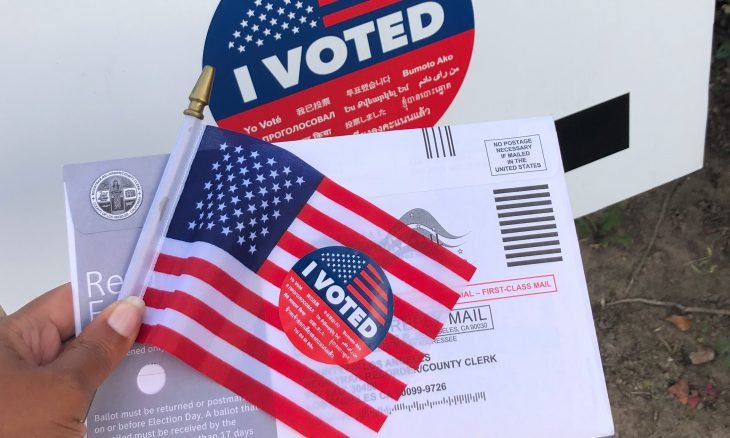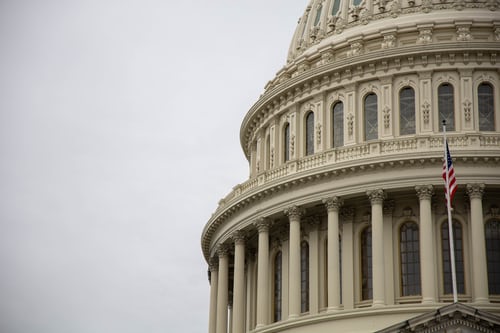Are immigration and voter fraud connected? What’s stopping noncitizens from voting?
PRAY FIRST for those in Congress and the president’s administration as they evaluate laws to safeguard democracy and the elections in America.
“Oh, the depth of the riches and wisdom and knowledge of God! How unsearchable are his judgments and how inscrutable his ways!” – Romans 11:33
As the United States Presidential Election nears this fall, eyes across the country, and even the world, are watching to see how America prepares for fair and secure voting. To be an eligible voter in federal elections, individuals must meet the following requirements:
- Citizenship: Must be a U.S. citizen.
- Age: Must be at least 18 years old on or before Election Day. Some states allow 17-year-olds to vote in primaries if they will be 18 by the general election.
- Residency: Must meet state’s residency requirements and live in the state of voting for a certain period of time, which varies by state.
- Registration: Must be registered to vote by the state’s voter registration deadline.
- Identification: Must provide identification to register and vote, depending on the state’s laws.
Certain groups are generally not allowed to vote, including non-citizens, some individuals with felony convictions (depending on state laws), and some people with mental disabilities.
Federal Law in Action
The Safeguard American Voter Eligibility Act (H.R.8281), also known as the SAVE Act, was recently introduced, and it aims to reinforce existing laws to ensure that only U.S. citizens can register to vote in federal elections. Key provisions include:
- Proof of Citizenship: Individuals must provide documented proof of U.S. citizenship when registering to vote.
- State Responsibilities: States are prohibited from accepting voter registration applications without this proof and must establish programs to identify and remove non-citizens from voter rolls.
- Legal Actions: The bill allows for private legal action against election officials who register non-citizens and establishes criminal penalties for such actions.
The act does not impact state or local elections. It passed the House on July 11, 2024 and will next move on to the Senate. However, there are apprehensions among critics who fear that the additional requirements and bureaucratic hurdles could potentially disenfranchise legitimate voters and further sows distrust in an election process without sufficient evidence to do so.
Non-citizen Voter Fraud
Some in Congress have voiced concern over the bill, stating that the issue of noncitizen voting in the United States has been addressed through various existing laws and regulations in the last century.
- The National Voter Registration Act of 1993, while primarily focused on facilitating voter registration, also includes provisions that mandate applicants to affirm their citizenship status. This law requires voters to have proof of citizenship and multiple forms of identification and documentation at the time of registration.
- The Illegal Immigration Reform and Immigrant Responsibility Act of 1996 expressly prohibits noncitizens from participating in federal elections. This act is a further amendment to laws from 1948, 1972, 1974, and 1976, which all make it a federal crime for noncitizens to vote.
- A third bill, the Help America Vote Act of 2002, encompasses measures aimed at enhancing the administration of elections and includes multiple provisions to verify the citizenship and eligibility of voters.
When reviewing voter databases from 2003 to 2023, the conservative Heritage Foundation found 24 cases of noncitizens voting in 20 years. The libertarian Cato Institute confirmed this in their own research by revealing that most of the cases involved an American citizen incorrectly filling out voting forms and accidentally presenting themselves as a noncitizen. When reviewing 23.5 million votes cast in 2016, the Brennen Center for Justice found similar numbers. There were less than 30 suspected nonimmigrant voting cases, all triggering additional investigation and potential prosecution before their ballots were counted or rejected.
Welfare offices and other agencies in over 40 U.S. states, as well as some non-profit groups, provide voter registration forms without requiring proof of citizenship. While this is beneficial for U.S. citizens, when this is offered to migrants or other non-citizens, they could mistakenly assume that they can vote. If a noncitizen does attempt to register under these conditions, the person and agencies who aided them also face federal criminal charges.
Some see that an increase in migrants to the United States over the past few years could lead to more mistaken (or intentional) voting attempts. However, the Director of the Voting Rights & Elections Program Sean Morales-Doyle explains why noncitizen voting has been rare, “You’ve not only exposed yourself to prison time and deportation, you’ve put yourself on the government’s radar, and you’ve handed the government the evidence it needs to put you in prison or deport you.” He added, “Would you risk everything — your freedom, your life in the United States, your ability to be near your family — just to cast a single ballot?” The only recorded cases where noncitizens have attempted to register are due to being “misled by mistaken officials into thinking that they’re eligible,” Morales-Doyle said.
Strengthening Election Integrity
Proponents argue that the SAVE Act strengthens election integrity by reinforcing the previous legislation. It would establish a consistency across the states of how documented proof of citizenship is verified. This uniform standard would reduce discrepancies and potential vulnerabilities in the voter registration process and close existing loopholes that may allow non-citizens to register and vote. These clearer regulations could be crucial for maintaining the legitimacy of elections and allowing Americans to strengthen their faith in the election process.
Federal Overreach vs States’ Rights
The ongoing debate also centers on whether the federal government’s involvement in reinforcing these prohibitions may be perceived as overreach of federal power or if it is within the rights of the states to regulate such matters independently. Some critics argue that the SAVE Act represents federal government overreach and a power grab by large government. They believe that the responsibility for maintaining voter eligibility should remain with the states and that states are better equipped to manage their own election processes. Federal mandates could undermine state sovereignty. This perspective is rooted in the belief that local governments have a better understanding of their unique electoral challenges and demographics. Many state leaders believe that this bill will create additional bureaucracy and slow down the already bloated voting process. Many election officials are already overstretched, and more administrative hoops could impact their ability to process votes and could hamper the process for legal citizens to vote effectively.
On the other hand, proponents of federal legislation argue that uniform standards are necessary to maintain consistency and prevent disparities, emphasizing the importance of safeguarding the integrity of federal elections.
Praying for Legislation and Elections
Churches serve as important community hubs during elections, providing polling sites and opportunities for voter education and mobilization. While federal law prohibits churches from endorsing specific candidates due to their tax-exempt status, they can still engage in nonpartisan activities such as hosting candidate forums and distributing voter guides.
Considering the upcoming elections and the ongoing legislative debates surrounding the SAVE Act, it is important for Christians to engage in prayerful support for these critical processes. We must ask God to give wisdom and discernment to our lawmakers as they debate and vote on this bill. Additionally, we must pray for fair and just policies that protect the integrity of elections while ensuring that all eligible voters can participate. As the campaign trail seems to become more and more divisive each year, pray also for peace and unity during the election process and for protection against division and conflict.
It’s also important to pray for the candidates, asking that they may lead with integrity and a heart for service. Furthermore, we should pray for election officials and volunteers that they may carry out their duties with fairness and diligence. By lifting these concerns in prayer, Christians can seek divine guidance and support for a just and fair electoral process. It is our responsibility to engage in prayerful reflection and action to contribute to the betterment of our electoral system and the well-being of our nation.
HOW THEN SHOULD WE PRAY:
— Pray for our elected officials as they evaluate laws, that they would seek to do what is in the best interest of the American people and protect the rights of all citizens. The hand of our God is for good on all who seek him, and the power of his wrath is against all who forsake him. – Ezra 8:22
— Pray for God to grant wisdom and discernment to election officials who oversee the upcoming elections and voter registration. That the God of our Lord Jesus Christ, the Father of glory, may give you the Spirit of wisdom and of revelation in the knowledge of him – Ephesians 1:17
CONSIDER THESE ITEMS FOR PRAYER:
- Pray for Americans as they prepare to go to the polls this year, in primaries and in the general election in November.
- Pray for candidates running in this election to seek to align their values with God instead of being beholden to special interest groups.
- Pray for members of Congress as they evaluate legislation and try to balance government oversight with protecting Americans’ freedoms.
Sources: Congress.gov, House.gov, Senate.gov, Internal Revenue Service, NBC News, HGovTrack, The Hill, Newsweek, Washington Examiner, Khan Academy, Cato Institute, The Federalist, Heritage Foundation, Brennan Center for Justice, World Vision, Baptist Press, NPR, AP News, CNN, Fox News









